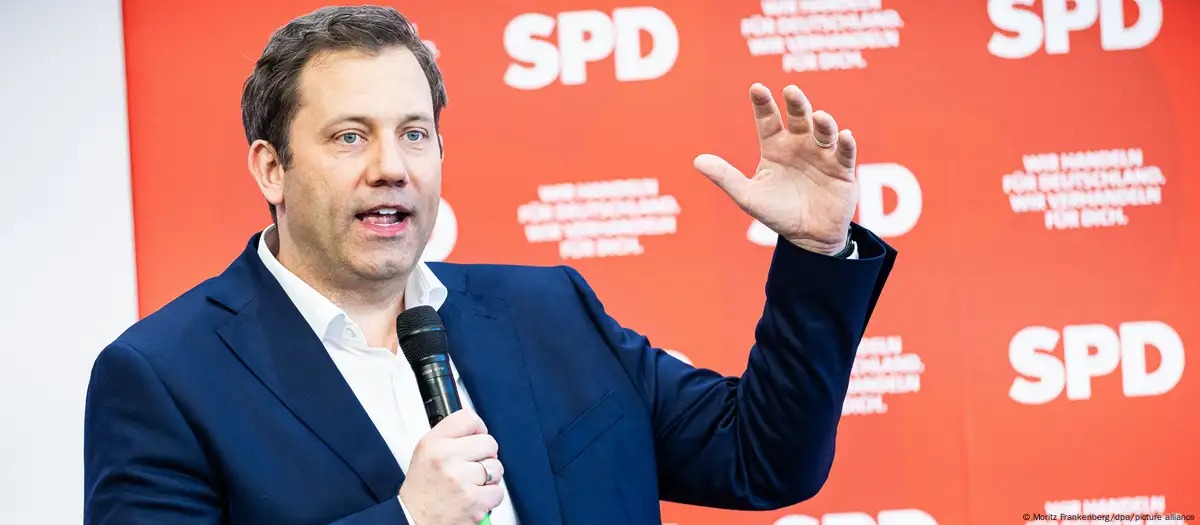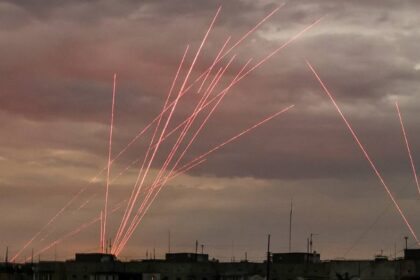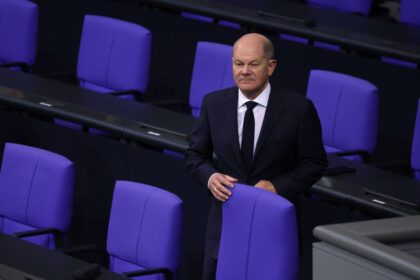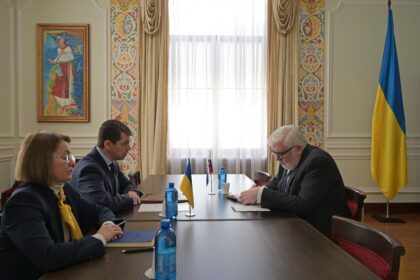**Germany’s Mixed Signals on Ukraine Aid**
On May 26, German Vice Chancellor Lars Klingbeil dropped a bombshell by stating that there are still “no new agreements” on lifting range restrictions for German-supplied weapons to Ukraine. This directly contradicts a statement made just hours earlier by Chancellor Friedrich Merz, who said that Ukraine can now strike Russian territory with Western arms.
The contradiction highlights the ongoing uncertainty and hesitant support from Germany and other Western countries towards Ukraine’s fight against Russia. Despite repeated calls for more effective military aid, Western deliveries have consistently suffered from delayed timelines and restrictions on using certain weapons against Russian targets.
**Range Restrictions Remain**
Klingbeil’s statement was made in response to a question at a press conference in Berlin, where he simply said that “there is no new agreement” beyond what the previous government did. This appears to be a reference to the cautious approach taken by former Chancellor Olaf Scholz, who consistently feared escalating tensions with Russia and refused to supply Taurus cruise missiles to Ukraine.
**Merz’s Statement Sparks Reactions**
In contrast, Merz had earlier declared that there were “no longer any range restrictions” for weapons delivered to Ukraine. He claimed that this policy change was part of discussions held with French President Emmanuel Macron and Polish Prime Minister Donald Tusk during their joint visit to Kyiv two weeks ago. However, Klingbeil’s subsequent statement has raised uncertainty over whether Merz’s words reflect a genuine policy shift or simply acknowledge existing practices.
**Russian Threats and German Reactions**
The Kremlin quickly condemned Merz’s statement as “a rather dangerous decision” that contradicts Russia’s efforts to find a peaceful solution. Within Germany, reactions were mixed. Some politicians, like Ralf Stegner (SPD), expressed concern that escalation through the delivery of more weapons will not end the war. Others, like Agnieszka Brugger (Greens), welcomed Merz’s statement as “logical and long overdue.”
**Analysis**
The ongoing confusion over Germany’s stance on range restrictions highlights a deeper issue – the hesitancy and inconsistency in Western support for Ukraine. Despite repeated commitments to aid, deliveries have consistently arrived too late or with restrictive conditions that undermine Ukraine’s operations. This pattern of hesitant support has weakened counteroffensives, like the one in 2023, and raises questions about the true commitment of Western countries to Ukraine’s cause.
As tensions between Russia and Ukraine continue to escalate, it is imperative for Germany and other Western countries to provide clear and consistent support. The mixed signals from Klingbeil and Merz only serve to perpetuate uncertainty and undermine confidence in Western aid.
**What’s Next?**
The implications of Klingbeil’s statement on Ukraine’s military operations remain unclear. Will the policy change lead to more effective counteroffensives, or will it simply confirm existing practices that have failed to deliver results? One thing is certain – the ongoing conflict requires a unified and unwavering commitment from Western countries towards supporting Ukraine’s fight against Russian aggression.
Read More @ euromaidanpress.com












